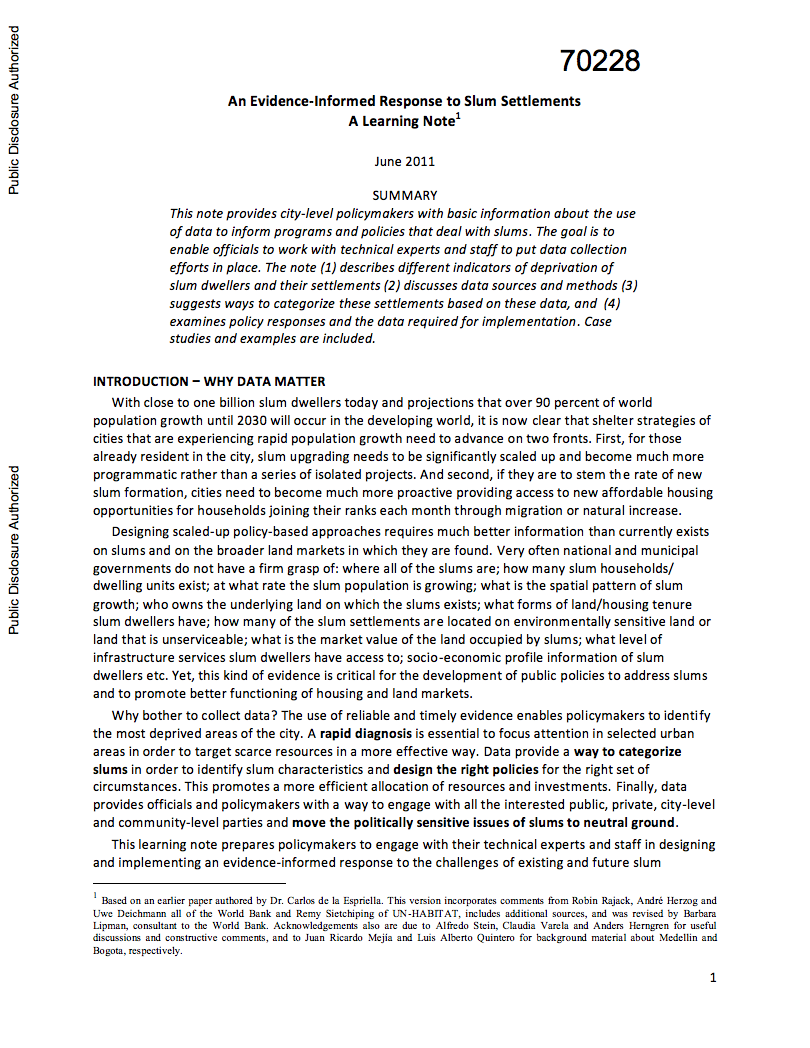Transforming Settlements of the Urban Poor in Uganda : A Secondary Cities Support Programme
This report describes theTransforming
Settlements of the Urban Poor in Uganda. A Secondary Cities
Support Program (TSUPU), is the first national initiative
within the Cities Alliance's global programme, Land,
Services and Citizenship for the Urban Poor (LSC). The first
premise of the Medium Term Strategy is that the Cities
Alliance should prioritise working with those governments
already committed to change and reform over time for three


